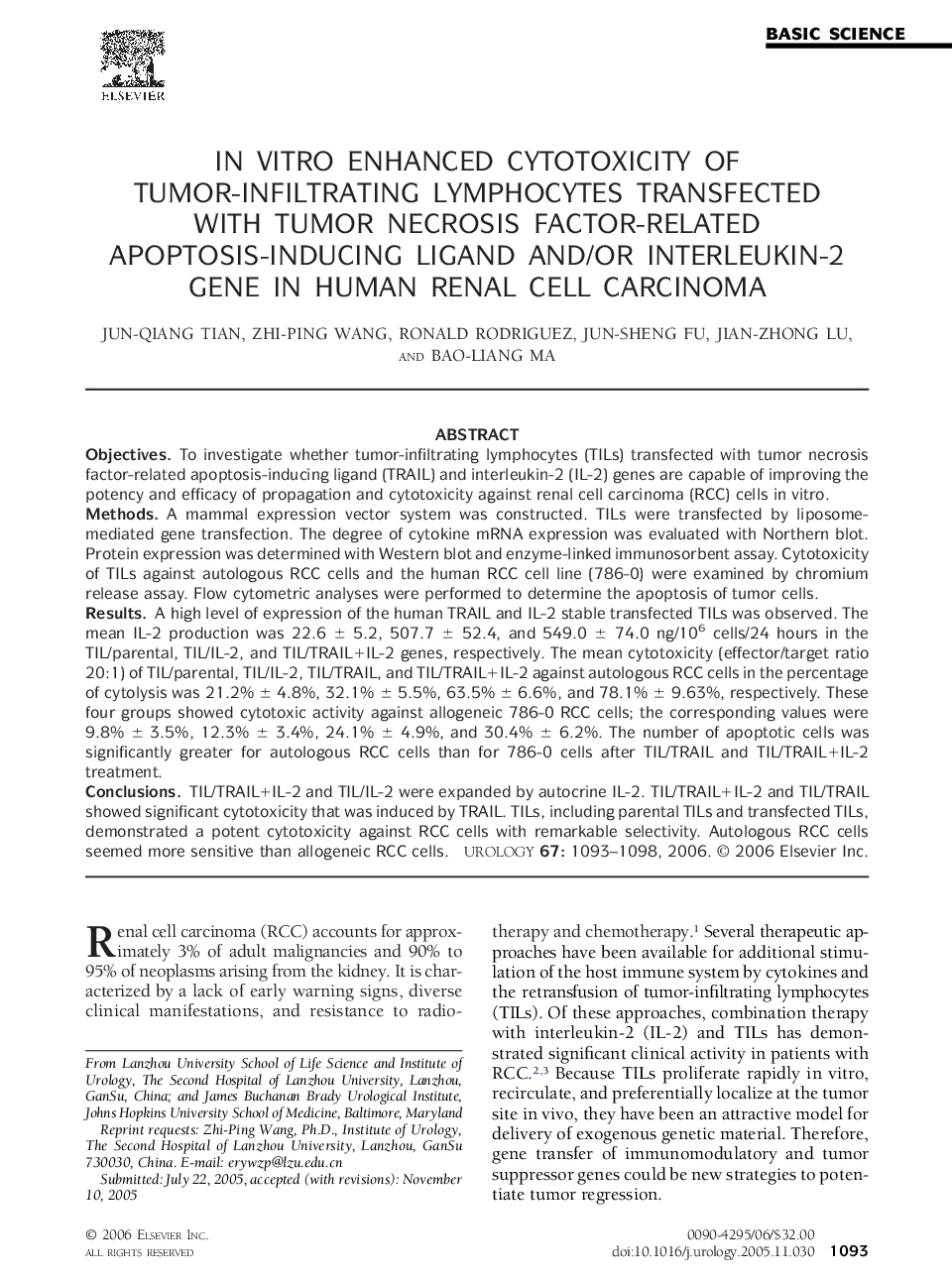| Article ID | Journal | Published Year | Pages | File Type |
|---|---|---|---|---|
| 3906887 | Urology | 2006 | 6 Pages |
ObjectivesTo investigate whether tumor-infiltrating lymphocytes (TILs) transfected with tumor necrosis factor-related apoptosis-inducing ligand (TRAIL) and interleukin-2 (IL-2) genes are capable of improving the potency and efficacy of propagation and cytotoxicity against renal cell carcinoma (RCC) cells in vitro.MethodsA mammal expression vector system was constructed. TILs were transfected by liposome-mediated gene transfection. The degree of cytokine mRNA expression was evaluated with Northern blot. Protein expression was determined with Western blot and enzyme-linked immunosorbent assay. Cytotoxicity of TILs against autologous RCC cells and the human RCC cell line (786-0) were examined by chromium release assay. Flow cytometric analyses were performed to determine the apoptosis of tumor cells.ResultsA high level of expression of the human TRAIL and IL-2 stable transfected TILs was observed. The mean IL-2 production was 22.6 ± 5.2, 507.7 ± 52.4, and 549.0 ± 74.0 ng/106 cells/24 hours in the TIL/parental, TIL/IL-2, and TIL/TRAIL+IL-2 genes, respectively. The mean cytotoxicity (effector/target ratio 20:1) of TIL/parental, TIL/IL-2, TIL/TRAIL, and TIL/TRAIL+IL-2 against autologous RCC cells in the percentage of cytolysis was 21.2% ± 4.8%, 32.1% ± 5.5%, 63.5% ± 6.6%, and 78.1% ± 9.63%, respectively. These four groups showed cytotoxic activity against allogeneic 786-0 RCC cells; the corresponding values were 9.8% ± 3.5%, 12.3% ± 3.4%, 24.1% ± 4.9%, and 30.4% ± 6.2%. The number of apoptotic cells was significantly greater for autologous RCC cells than for 786-0 cells after TIL/TRAIL and TIL/TRAIL+IL-2 treatment.ConclusionsTIL/TRAIL+IL-2 and TIL/IL-2 were expanded by autocrine IL-2. TIL/TRAIL+IL-2 and TIL/TRAIL showed significant cytotoxicity that was induced by TRAIL. TILs, including parental TILs and transfected TILs, demonstrated a potent cytotoxicity against RCC cells with remarkable selectivity. Autologous RCC cells seemed more sensitive than allogeneic RCC cells.
